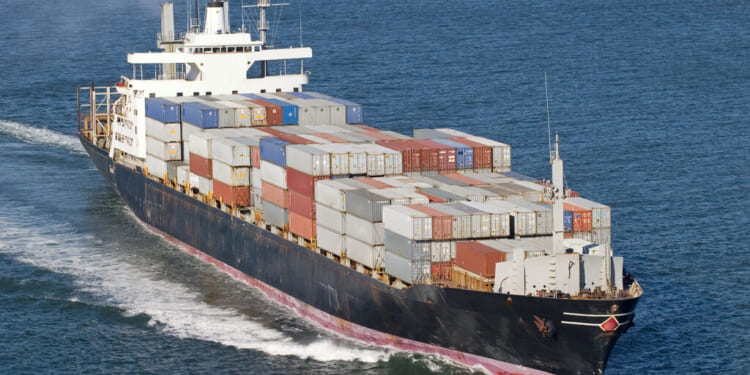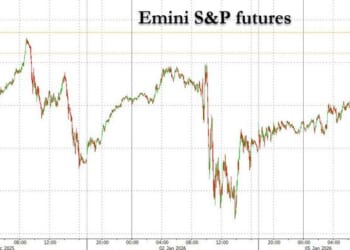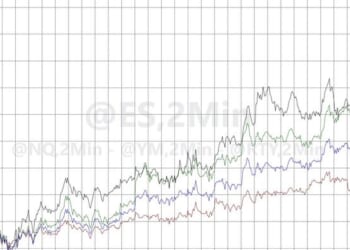Fueling The Conversation, Week of November 3rd, 2025
From the 1997 Kyoto Protocol to the 2015 Paris Agreement, the United Nations has a long history of setting strict global climate goals, requiring countries to forgo energy freedom and adopt net-zero mandates with no consideration of their effect on our pocketbooks.
While the UN Framework Convention on Climate Change has played the most prominent role in pushing the transition to net-zero, the most recent effort comes from a lesser-known agency: the International Maritime Organization (IMO). Established in 1958 with the stated purpose of facilitating international cooperation on the high seas, the IMO has re-oriented its focus on safety, efficiency, and pollution mitigation to include “tackling the climate crisis.”
Citing the UN Sustainable Development Goal 13 — which directs all countries to “take urgent action to combat climate change and its impacts” — the IMO adopted a “GHG Strategy” that sets a goal of net-zero shipping by 2050. In doing so, the IMO included some “mid-term” measures to try and achieve this goal, which involve setting a marine fuel standard and greenhouse gas emissions pricing mechanism — i.e., a first-of-its-kind global carbon tax targeting global shipping. With almost no one paying attention, the IMO tried to reach beyond its scope of authority and reinvent the shipping industry. In April, the IMO approved a draft regulation for the carbon tax. They would’ve gotten away with it if not for President Trump.
Carbon taxes are a red line that most self-respecting U.S. politicians have been unwilling to cross, as evidenced by the failure of the 2009 American Clean Energy and Security Act, an attempt to implement a greenhouse gas cap-and-trade system. It’s no surprise, therefore, that the IMO’s proposal relies on heavy support from climate catastrophists in the European Union.
Proponents point out that the $11-13 billion in annual revenue generated from the tax by 2030 would go towards IMO investments in helping the industry transition to greener shipping. But there is a reason why the industry hasn’t already invested in this transition. Low-carbon fuel alternatives, such as ammonia and methanol, have lower energy densities than traditional fuels, which requires ships to have larger storage capacity or refuel more than twice as often as conventional ships, according to the Global Maritime Forum. All this extra space and stoppage make each trip longer and less fruitful; when applied to the world’s fleet, these consequences would be disastrous.
Shipping is the most essential transportation mechanism for the global economy. Representing around 90% of global trade, over 50,000 merchant ships are responsible for transporting many of the products and raw materials people across the world rely on, ranging from automobiles to liquified natural gas. With the industry accounting for only 3% of global carbon emissions and 11% of life-cycle carbon emissions for the transportation sector, while also being instrumental to avoiding supply chain disruptions, it’s clear that the economic effects of forcing a transition to lower-carbon alternatives would heavily outweigh any climate benefits derived from the tax.
Even if Europe could shoulder these costs (though why they would want to is beyond me), the reality is that much of the world remains energy poor, meaning that any additional fee on transporting the vital products they require could cost lives — not just far in the future, as climate extremists predict, but now.
People across the world should be grateful that the Trump administration had the conviction to stand up to Europe and oppose the tax. Via a joint statement from Secretary of State Marco Rubio, Secretary of Energy Chris Wright, and Secretary of Transportation Sean Duffy, the administration threatened to impose visa restrictions, port fees, and sanctions on the individuals and states supporting the IMO’s net-zero framework, calling it a “neocolonial export of global climate regulations.” This pressure contributed to the body voting 57-29 to postpone a decision on implementing the regulation by another year.
The IMO’s attempted carbon tax continues a long line of UN efforts to push a green agenda by punishing countries for continuing to rely on natural gas, oil, and coal. President Trump did the world a tremendous service by fighting back against this EU-led initiative. However, the war is not yet won. The IMO’s Marine Environment Protection Committee will reconvene in October 2026 to vote again on formally adopting the tax.
The Trump administration needs to remain vigilant, using any available leverage to ensure the world doesn’t decide to change course and allow the tax to go into effect next year. Moreover, the administration should look more closely at our relationship with the UN and, without significant reforms, consider whether the more than $13 billion we give to the UN every year is worth the headaches we get in return.
__________________
Fueling the Conversation, a weekly column by IER President Tom Pyle, offers a principled take on energy events. Energy underpins all aspects of modern life, so policies that artificially limit production hurt everyday people paying to heat their homes and drive to work. “Green” groups push these policies for ideological reasons, but this column uses economic logic and hard facts to advocate for energy freedom.













